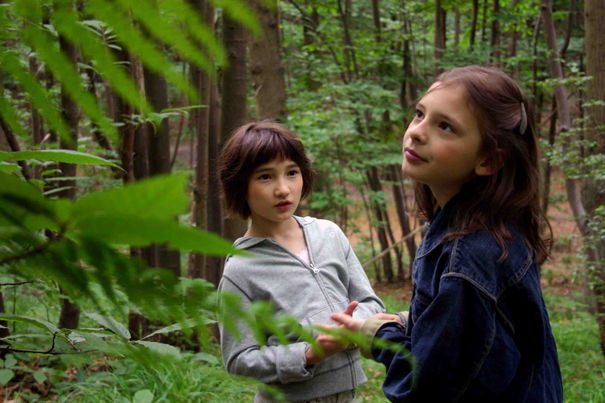Farewell Little Red Riding Hood
Populated by children, Berlinale Generation Kplus' YUKI AND NINA does not go easy on childhood and celebrates the end of fairy tales.

YUKI AND NINA
Nobuhiro Suwa and Hippolyte Girardot’s YUKI AND NINA, a French-Japanese co-production screened in the Generation Kplus section, is not so much a children’s film as a minimalist allegory about a nine-year-old girl who has to come to terms with real life when her parents decide to divorce. The dual identity of Yuki as the daughter of a Japanese mother and a French father forms another issue she must sort out. Meanwhile, Yuki’s relationship with her best friend Nina is the focus of the story: the two girls are together throughout most of the film, and we follow their adventures at length.
Although apparently plain, the storytelling is permeated by a symbolism that blends perfectly with the realistic representation. In order to prevent the divorce and Yuki’s expatriation to Japan, she and Nina make an effort to reconcile Yuki’s parents by writing them letters asking why they are divorcing. By signing the letters “Love Fairy,” the girls show a naïve innocence, which belongs to the early phase of childhood that still has room for fairy tales.
Rewriting “Little Red Riding Hood”, the film has the children run away into a forest, thinking that by alarming Yuki’s parents, they can drive them back together. The journey through the forest leads via unexpected twists and turns to a rite of passage by which Yuki, through her acceptance of the inevitability of separation, earns her admission to adulthood and leaves the fairy-tale world behind.
YUKI AND NINA is a subtle and harmonious work of multilayered storytelling, with everything in its right place and no loose ends. However, the film is sure to be a cold shower for many parents who take their children to see it. Its highly detached tone, as Suwa and Girardot seemingly observe their heroines from afar rather than try to enter into their experience, could alienate viewers. So could the slow pace and the directors’ predilection for letting shots drag on long after they have made their point.


301 Moved Permanently